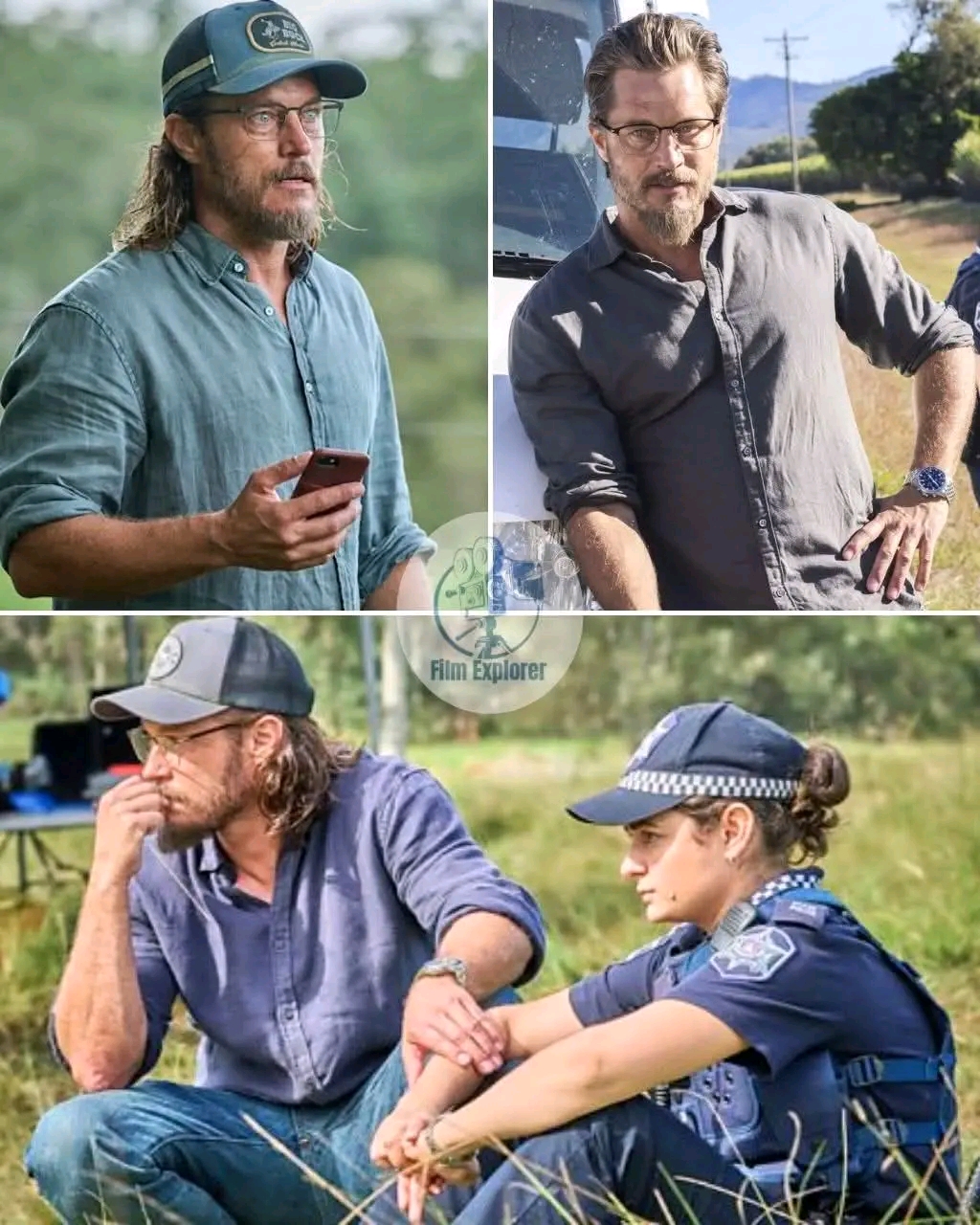“Off the Rails in the Outback” — how a quiet corner of Australia turned into the setting for what many are already calling the TV event of 2025.
When BBC dropped Season 2 of its latest crime thriller, the conversations on social media, among critics and in living rooms across the UK and beyond shifted in one direction: This is something different.
A crime drama rewriting the rule book
The show opens with the dusty roads and battered trailers of Queensland, the sun‑bleached horizon of somewhere far removed from London’s maritime grey. The cases are cold, the details long buried — until they aren’t. At its centre is Detective Cormack: a cop haunted by more than just unsolved murders. His younger brother vanished in 1994, and as the series unwraps new crimes, it unravels his own family secret with merciless precision. In the opening episodes we see him handed files that shouldn’t have been reopened — skeletons of cases marked “done”, “closed”, “forgotten” — and forced to peer at them again, this time with the weight of his own grief on his shoulders.
The writing is razor‑sharp: nothing is wasted, nothing is outside the story’s remove. Twists feel earned. Characters aren’t just cogs in the investigation machine — they’re broken people trying to do right in a system built on right‑and‑wrong that doesn’t apply to them. The format ramps up: one cold case, then another, then the creeping suspicion that these cases aren’t entirely independent of his own brother’s fate. By episode 4 you’re not just watching a thriller; you’re living it.
Why viewers are obsessed
It’s rare that a series demands your full attention and rewards it. In the days since launch, hundreds of posts across X (formerly Twitter) and Instagram stories show viewers typing out bleach‑white screen text: “I can’t believe that ending.” “I lost sleep after ep 6.” “Was I shouting at my wife? Probably.” The emotional tone is unrelenting: one viewer wrote that they paused the show to look out the window and remind themselves they were safe. Others admitted to compulsively watching one more episode, then “just one more”, only to finish the season in a single night.
Critics are weighing in. One review called it “the best drama of 2025 to date”, heralding its pacing, the layering of secrets and the emotional core that carries the procedural beats. Another said the show was “streets ahead of anything else this year in the BBC slate.” What sets it apart, they say, is not the big twist (there are many) but the way the twist is earned through character. Cormack’s missing‑brother storyline seeds every episode with a personal stake that mere “case of the week” dramas struggle to manufacture.
The heart‑of‑darkness: family secrets and illusion of closure
At the core of the series is something deeply human: the idea that you can never fully escape your past. Detective Cormack’s brother vanished in 1994. The case was closed, quietly, with the assumption he simply ran away or worse. But when new evidence — things that should stay buried — surfaces, the entire edifice of his life cracks open. Not merely the investigation, but his family, his sense of self, his work. He is forced to ask: Was the brother he lost the person he thought he knew? And was his own career built on a lie?
That emotional through‑line gives the show its weight. Cold case dramas often hinge on “the killer revealed”. This one hinges on “the man we thought we were”. As events unfold, Cormack’s world blurs: partner becomes suspect, colleague becomes antagonist, family becomes forensic archive. By the closing episode you’re left breathless by the final reveal — and haunted by the epilogue. The producers don’t let you off the hook. The series ends in one door closing and another swinging open.
Episodic thrills, but a binge worth savouring
Because the series is built for bingeing, each episode ends on a whisper of dread and a hammer‑blow of revelation. From the checkpoints in Queensland’s bushland to the courtrooms in Brisbane, the texture is tactile. Viewers say they’ve paused the show to lean in. The direction, the editing, the soundtrack all conspire to keep you off‑balance. One scene, in particular: moonlight shimmering on a creek, a rusted car half‑submerged, where Cormack realises he may have been chasing the wrong missing person his entire career. That moment, editors say, took six takes, but plays with the effortless inevitability of revelation.
Because of its format, many viewers watched the season in one sitting; others spaced it out. Either way, the show spreads. Word‑of‑mouth is the engine. Watch‑parties, thread posts analysing minute clues, subs splitting hairs over whether a character’s hesitation contained a confession.
Why this matters now
The timing couldn’t be better. In an age when crime dramas proliferate, this show stakes a claim to being more than “just a thriller”. It poses moral questions: What happens when closure is a myth? What price is paid by the families who never get a body, a trial, a verdict? It reminds us that behind every front‑page murder there’s a quiet sub‑plot of loss, uncertainty, un‑ending wait. In that sense, the show feels urgent rather than escapist.
Moreover, it underscores something of a renaissance for British‑Australian crime drama. While the BBC has invested in domestic thrillers for decades, this one brings an international edge: remote location, cross‑jurisdictional policing, the culture of missing‑persons cases in terrain that is beautiful and unforgiving. Its success may herald more such productions, turning the camera outward.
Where the story goes from here (and why you’ll want Season 3)
Spoiler‑safe talk: the final scene of Season 2 drops a bombshell that unravels everything yet again. A character long presumed benign shares a secret document. A previously peripheral victim’s identity becomes central. And Detective Cormack stands alone, in the dark, watching a door close that he thought opened years ago.
Naturally, conversation has already turned to what Season 3 must be. Will the brother’s case finally come home? Will the new evidence propel Cormack into territory he’s been trying to avoid: facing his own complicity in the years of silence? Will the cold cases turn hot, and reverse roles, making Cormack the accused rather than the investigator? All signs point to yes — and viewers are on board. Already trending: #BringBackCormack and #Season3Now.
Watch this, but brace yourself
If you’re planning to catch the show, here’s the heads‑up: this is not light viewing. It’s not a cozy mystery you solve between cups of tea. The series demands focus, emotional investment and a readiness to be unsettled. That said, reward comes in spades. By episode four you’ll likely find your definition of “cold case” changed. By episode six (the season finale) you’ll be torn between relief that it’s over and regret that it’s over.
For binge viewers: resist the temptation to watch too much in one go. Some of the revelations hit harder if you pause, breathe, and come back. But if you want the full wall‑to‑wall experience, settle in. Lights dimmed, phone on silent, headphones advised.
Final word
The BBC’s latest crime thriller isn’t just a show — it’s an experience. At its heart is the idea that sometimes the case you’re working is the case in your own life. With every twist, with every clipped reveal, with every secret handed over quietly, it reminds us that the past never stays dead, it just waits. And when you finally peel back the last layer, you might find the person you were chasing was chasing you.
If you haven’t watched it yet: stop reading this, fire up your streaming service, and dive in. The longer you wait, the more spoilers you’ll regret. But once you start, there will be no stopping. And if you think you’ll walk away unchanged — good luck. Because this one will stay with you.



